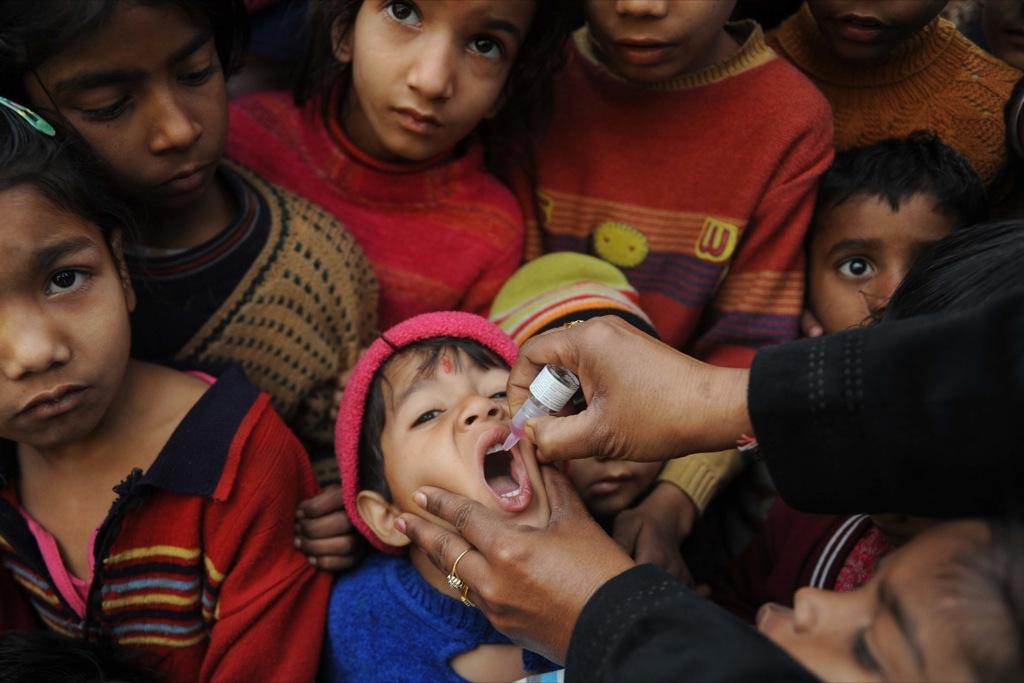India: A nation’s bad health reflects worst of rich and poor
An Indian boy receives anti-polio vaccination drops by an Indian Health worker as part of a Polio vaccination campaign in Amritsar on January 23, 2011.
With an abysmal record on health care spending and one of the world's poorest populations, you'd expect India to be a sick country. But what's surprising is that the situation is arguably getting worse faster than it's getting better.
Consider this:
According to an article in the Times of India Thursday, about 37 percent of Indian deaths are still caused by "poor country" diseases like tuberculosis and malaria–or plain old diarrhea. But as many as 53 percent of deaths are now caused by "rich country" problems like heart failure and diabetes–suggesting that lifestyle-related health problems are multiplying faster than the country can eliminate diseases related to vaccination programs and hygiene.
Perhaps worse still, the country is hardly making any progress against those "poor country" problems, considering its rapid economic growth.
"Even Bangladesh, with no economic superpower claims, has managed to reduce maternal mortality rate (MMR) from 320 per 100,000 live births in 2001 to 194 by 2010. In India, MMR continues to be as high as 212," writes TOI.
Meanwhile:
Every year, 1.73 million "children under five years die in India, most of them before their first birthday. The infant mortality rate of 50 deaths per 1000 live births in 2009 is inching down — it was 58 in 2005 — but look at Bangladesh: they have reduced it from 102 in 1990 to 41 in 2009."
Despite the crisis, the government appears to be doing virtually nothing. Over the last five years, government spending on health care has been laughably low. In 2007-08, it was 0.9% of India's GDP. Five years later (2011-12), combined expenditure on health had doubled in absolute terms, but as a share of GDP it remained at 1%, according to the paper. And now? Now, the government is proposing to hike public spending on health by half a percentage point — 1.6% of GDP–which has health activists outraged.
The result is that "the country with the largest number of poor people — and the biggest chunk of patients — in the world also has the most privatized healthcare system of all nations," the paper concludes.
"To compound the problem, India has low medical insurance penetration. Lack of affordable and easily accessible state health infrastructure forces people into the waiting arms of profit-seeking private hospitals in ever-larger numbers, putting an enor mous load on already stretched facilities. It opens the doors to unscrupulous operators fleecing poor patients. It also paves the way for neglect and tragedies that occasionally make headlines."
We want to hear your feedback so we can keep improving our website, theworld.org. Please fill out this quick survey and let us know your thoughts (your answers will be anonymous). Thanks for your time!
